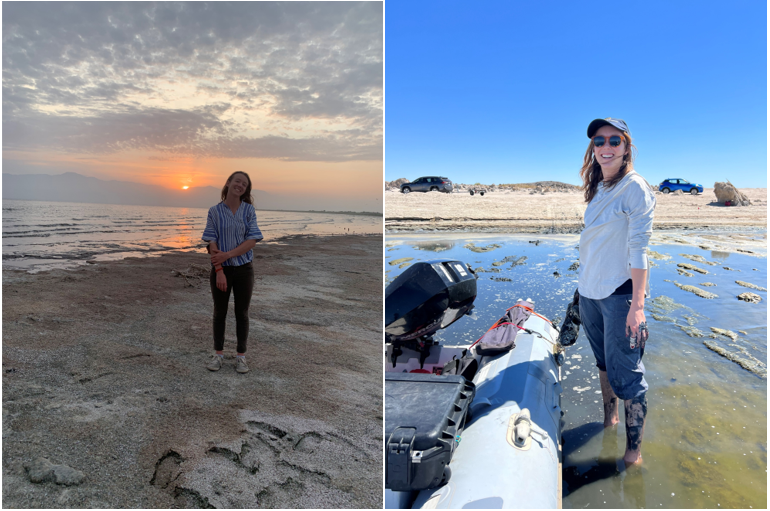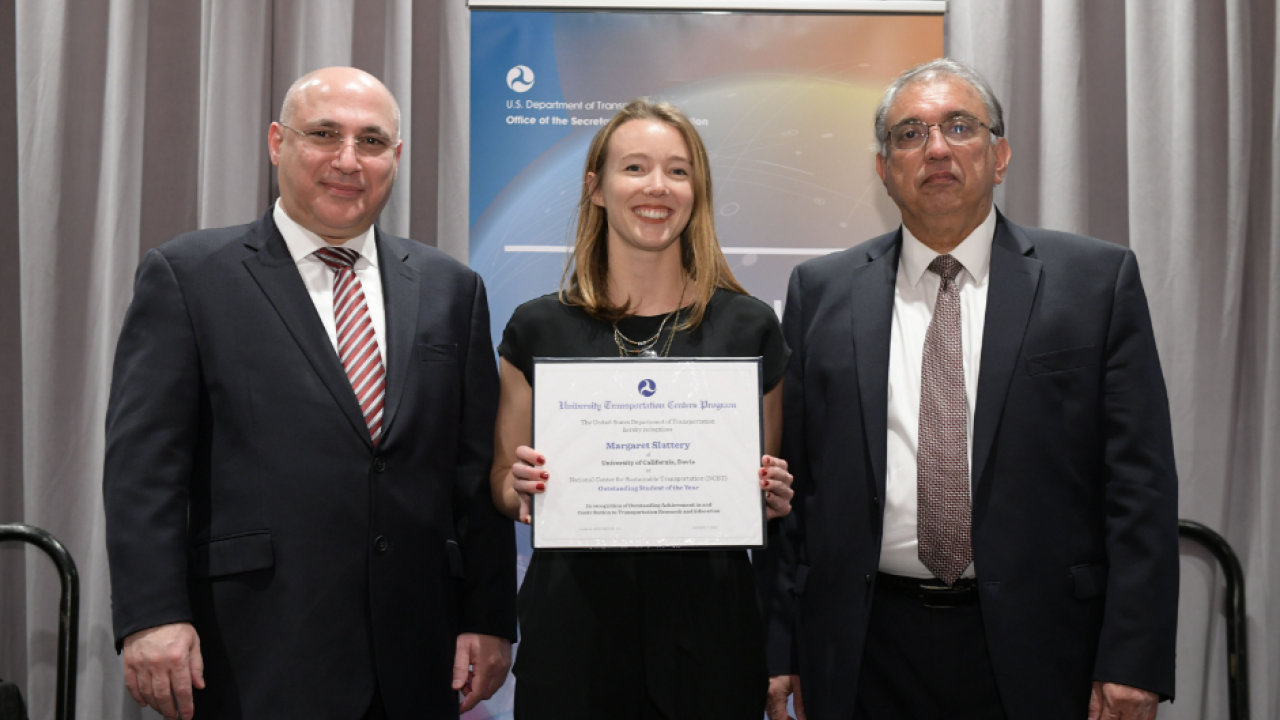UC Davis PhD Candidate Meg Slattery shares the experiences that shape her research
Meet UC Davis PhD Student Meg Slattery!

From grade school to college, Meg Slattery’s experiences have extended beyond the boundaries of a traditional education. She grew up in Denver, Colorado and attended a Waldorf school, receiving a holistic education where her teachers encouraged exploration of standard classes—history, math, physics, and so on—as well as skills like sewing, knitting, woodcarving and playing instruments. At Vassar College in New York, she became immersed in her Science, Technology & Society major, learning how science and technology are shaped by social and political factors and vice versa. Through interdisciplinary classes at Vassar, Meg was introduced to topics like renewable energy and bioethics. From there, it snowballed. Next, Meg was abroad, participating in a climate politics program, traveling to Vietnam, Morocco, and Bolivia to learn about climate impacts and energy policy, while visiting farms, water treatment facilities, power plants, and factories.
Before pursuing her Ph.D., Meg lived in Nicaragua for 18 months and worked with a locally run nonprofit group called Grupo Fenix. Among other initiatives, it installed small solar photovoltaic systems at people's houses. Although these systems were designed to last 20 years, many failed after 3-5 because the batteries would die and were often too expensive for families to replace them. When she started her master’s degree program at UC Davis, she was struck again by the central role of batteries, this time in supporting California’s strategy to decarbonize its energy and transportation systems. Her experience with Grupo Fenix led her to ask questions: “What are all these batteries made from? How do those materials get mined? What’s the plan for them when they die?”.
All of these experiences culminated in Meg’s pursuit of a Ph.D. in Energy Systems at UC Davis. At Davis, Meg’s research is related to Industrial Ecology— the flows of energy and materials that are associated with different activities, products, or systems. But how exactly does Meg's background connect with her work and the field of transportation? When asked exactly that, Meg answered that her energy-related academic pursuits connected her to transportation, as the transportation sector is a primary end-user of energy. Her fascination with transportation, though, extends beyond just academics:
“If you can drive a car, you can go anywhere and bring a bunch of stuff, and that changes what’s possible for you—especially when it comes to accessing nature or remote places. If you can take a train or a bus, you get to stare out the window or read, and you have more interactions with people. If you can bike or walk, you get exercise and you see details you’d miss if you were moving faster. Or if you take a taxi, you can learn a lot about a new place, or learn about someone’s experience that’s completely different from yours even if you’re in a city that is familiar to you. And then on a societal level, if everyone can easily take public transportation, there’s more sense of community because people get used to sharing space with each other, and there is more equality in the opportunities people can access.”
Meg strongly believes that for the energy transition to be successful, researchers need to seek out the perspective of underrepresented communities, an idea she credits to educational opportunities through Vassar College, SIT, and the Feminist Research Institute at UC Davis, as well as her experience in Nicaragua. She continues to promote local perspectives in her work today. Over the summer, Meg interned for Lawrence Berkeley National Lab’s Lithium Resource Research and Recovery Center (LiRRIC), analyzing transcripts of public meetings and connecting with community-based organizations to understand local stakeholders’ priorities and questions about lithium extraction. This spring, Meg will be returning to the LiRRIC to take on new challenges of sharing information in an accessible way and developing best practices for science communication on the potential impacts of mineral extraction.
In the future, Meg hopes to support our transportation system by helping to develop a sustainable strategy for critical minerals, or non-fuel minerals vital to the nation and acutely vulnerable to disruption. Her experiences and skills will undoubtedly serve her well in this goal, whether she works with government, consulting, or the battery recycling industry.
Meg Slattery was awarded the 2022 NCST Outstanding Student of the Year at the Transportation Research Board’s (TRB) 102nd Annual Meeting—the latest of many achievements, such as a Corporate Affiliates Fellowship Award from BMW in 2021 and a NCST dissertation grant to support Meg's research in the Salton Sea, becoming the Chair of the Natural Resources Commission for the City of Davis, and opportunities to present about the EV battery supply chain and recycling for the National Caucus of Environmental Legislators (NCEL), Electric Power Research Institute (EPRI), and UC Davis Energy and Efficiency Institute. Congratulations on your achievements, Meg!

